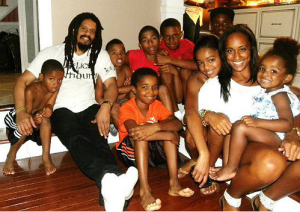Plenty of Siblings: Recipe for a Successful Marriage?

 What do your siblings have to do with a successful marriage?
What do your siblings have to do with a successful marriage?
Well, on the surface, you might think nothing at all. But this is not according to American researchers. An extensive study carried out in the US revealed a strong link between a higher than average number of siblings and lower than average divorce rates.
The research was a considerable undertaking and no flash in the pan exercise with a large sample of 57,000 people from across the US surveyed between 1972 and 2012. The researchers found marriages between people from larger families were 2 percent less likely to end in divorce.
Research Findings: How Sibling Relationships Can Help in Your Own Marriage
The results of the research can be summarized. If you are one of many rather than one of a few, particularly if you have sisters, you will be more comfortable talking about your feelings and more open to discussions. This can help to resolve problems before they reach a critical stage.
The research proposes compromise is an essential ingredient in a long and happy marriage. This is a skill which being part of a large family can help to develop. Rather than heading straight for the door, those who grow up with lots of siblings are more willing to overcome problems within their marriage, ultimately increasing both the length and happiness of their union.

The ability to communicate and compromise are first developed when children learn they must share the limelight with their siblings. Conversely, an only child will be more inclined to please themselves and bathe in the glory of their parents’ affection. However, the researchers were still shocked to see such a strong correlation between the number of siblings and reduced divorce rates.
US Statistics on Divorce: Is Your Own Marriage Likely to Fail?
Take note the above findings do not say if you are not from a large family, then your marriage is destined to fail; far from it. Family size alone only accounted for a 2 percent variance in divorce rates.
There are of course innumerable factors which have an impact on divorce rates. It also goes without saying many children with fewer siblings can develop the same ability to communicate and compromise as those from larger families.
Statistics from the US showed 20 percent of first marriages failed in the first five years; 33 percent after ten years, and perhaps surprisingly, 43 percent of marriages came to an end after 15 years of marriage. Perhaps after 15 years it’s a case that familiarity breeds contempt!
Currently the UK divorce rate is at 42 percent, down 3 percent from a high of 45 percent three years ago. A recent study conducted in the UK shows the secret to a long and successful marriage is to make it past the ten year mark; after that it’s plain sailing; well, sort of!
If you find yourself in some sort of troubling situation in your marriage at the moment, take time to reflect on these statistics and on your own relationship. Which is important to you? How do you value your family? It’s important to seek professional advice in this case in order to shed light on your own situation.
The Author
Howells Solicitors offer a range of simple, straightforward and cost effective divorce solutions. For more information about an online divorce, take a look at their range of packaged solutions available online.
A two percent difference in the divorce rate based having a large number of siblings seems almost insignificant. Maybe this explains the success of the Brady Bunch? 🙂 If this was a publicly funded study maybe they needed something to justify the years and cost of research. Do think the study included blended families with a large number of stepsiblings? The same negotiation and compromise skills would be needed even more so in a blended family. What do you think?





